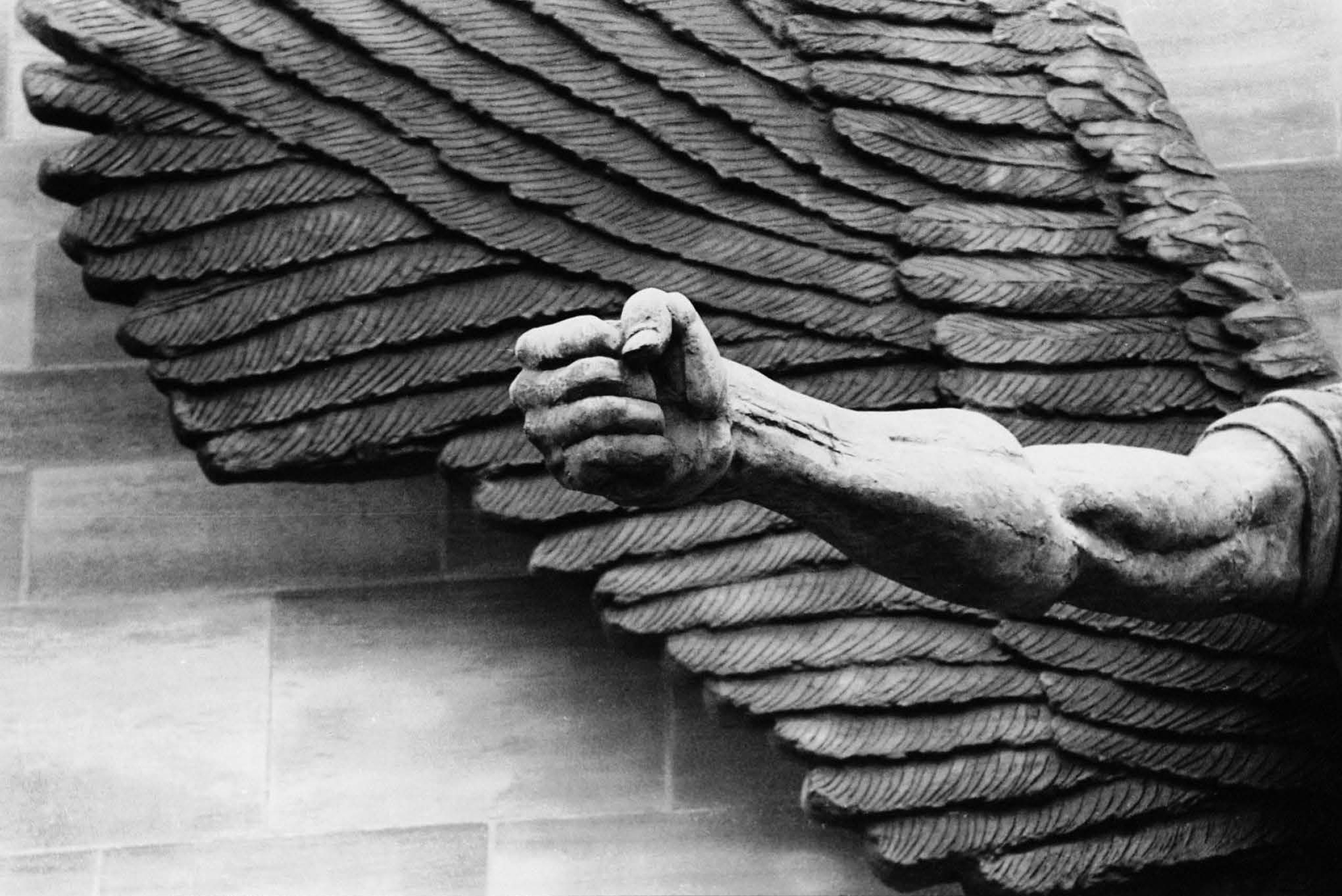In an era when many academics seek safety and comfort by avoiding politics, Howard Zinn stands out as a model of the engaged activist-scholar. His unconventional perspective on U.S. history has made him one of the most beloved figures of the progressive movement.
Zinn grew up in a poor Jewish immigrant family in Brooklyn, New York. He remembers moving a lot when he was a child. “We were always one step ahead of the landlord,” he says. There were no books or magazines in Zinn’s childhood home; the first book he read outside of school was a damaged copy of Tarzan and the Jewels of Opar, which he found in the street. Despite this inauspicious beginning, he was soon a voracious reader. His parents, seeing his interest, clipped coupons from a newspaper offer and ordered him the complete works of Charles Dickens, one book at a time. When he was thirteen, they got him a used Underwood typewriter.





